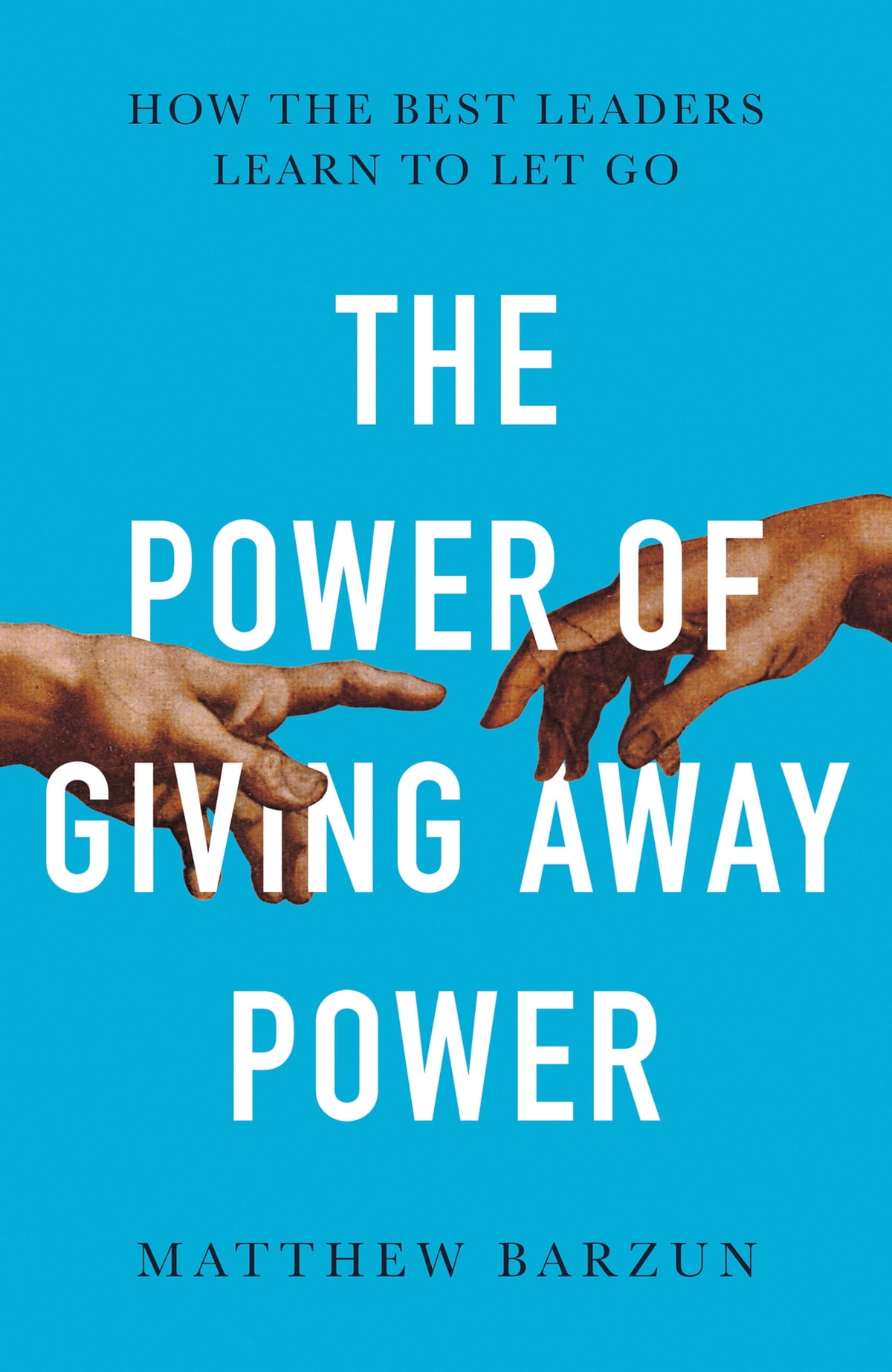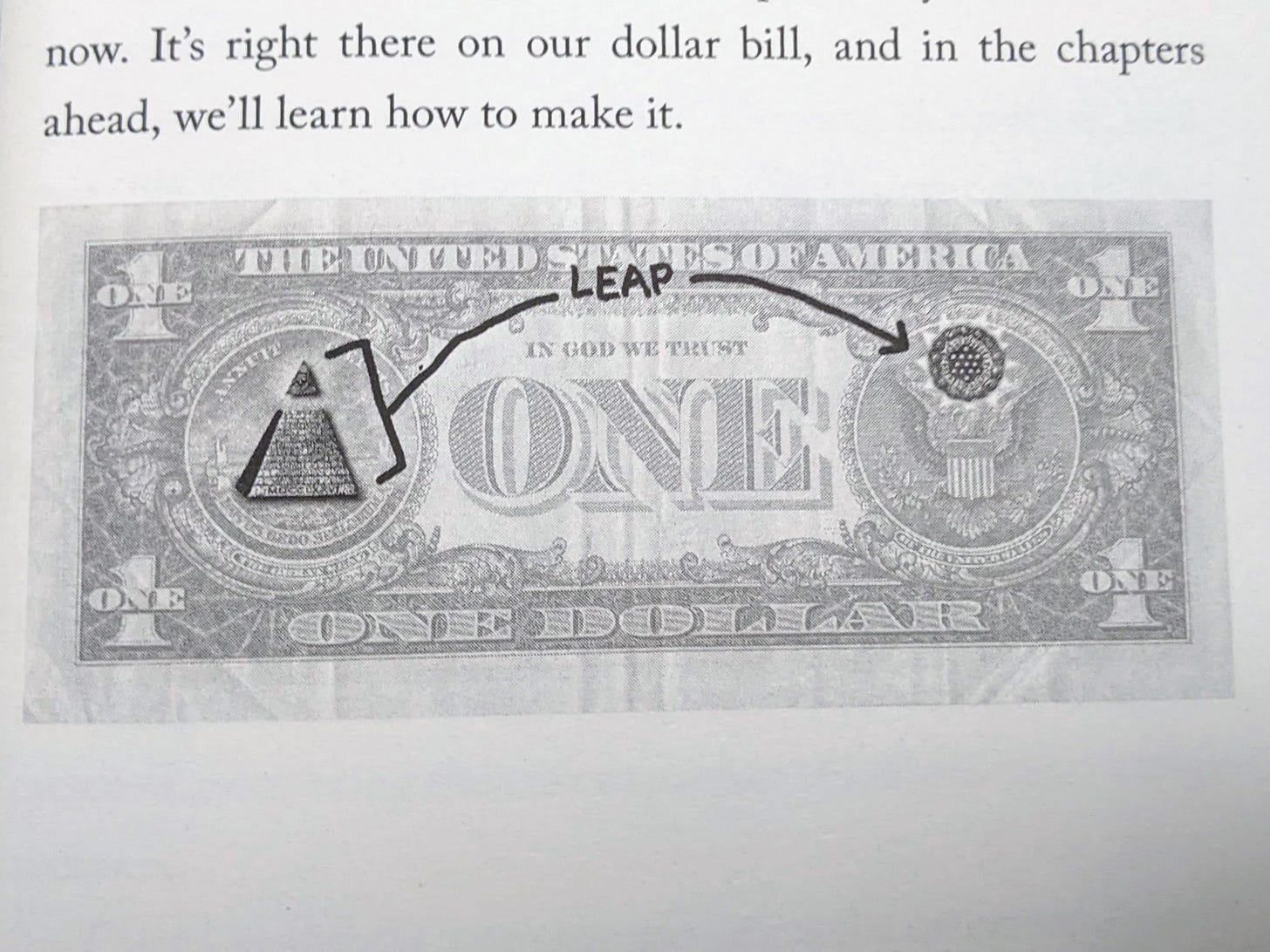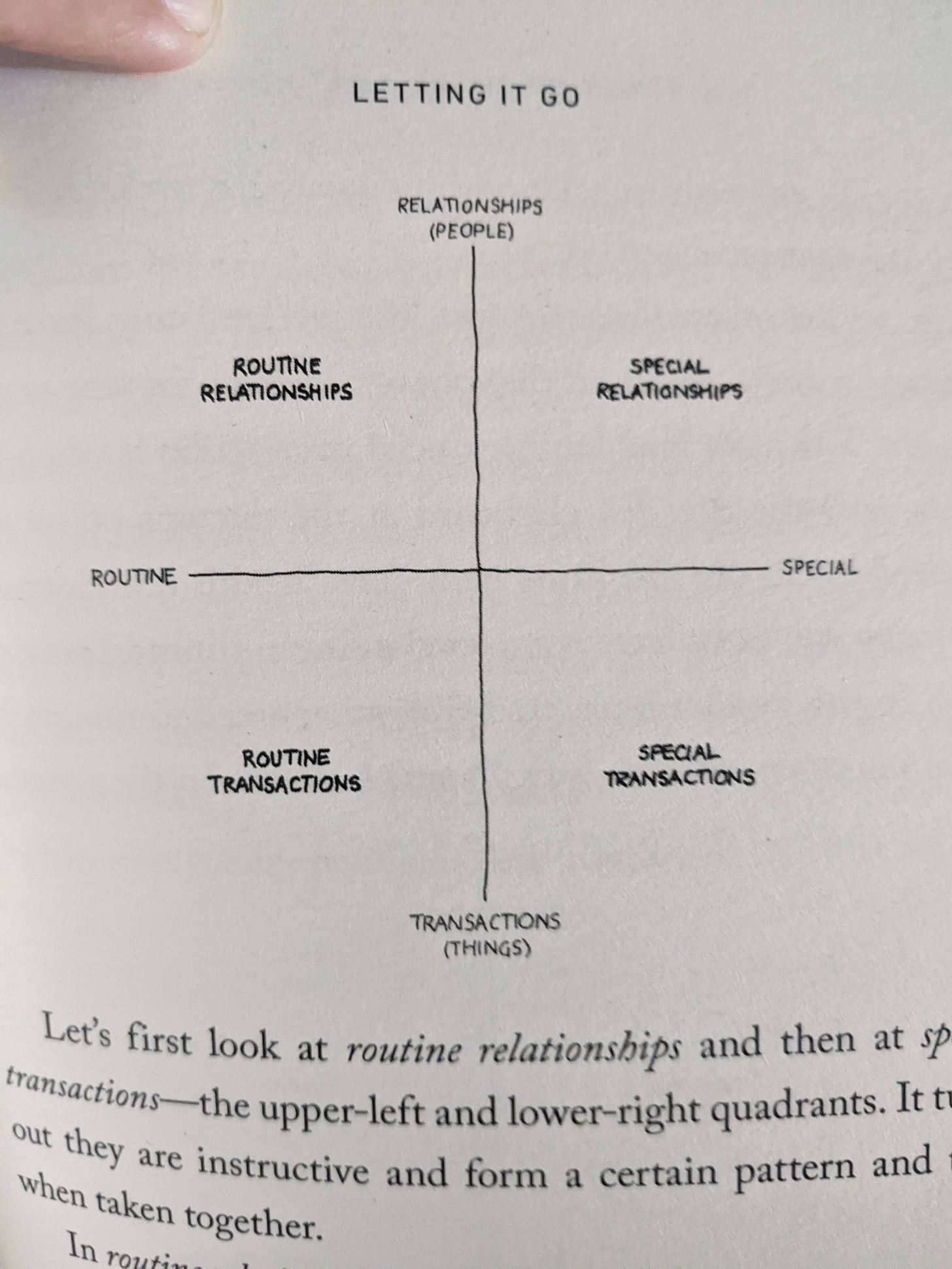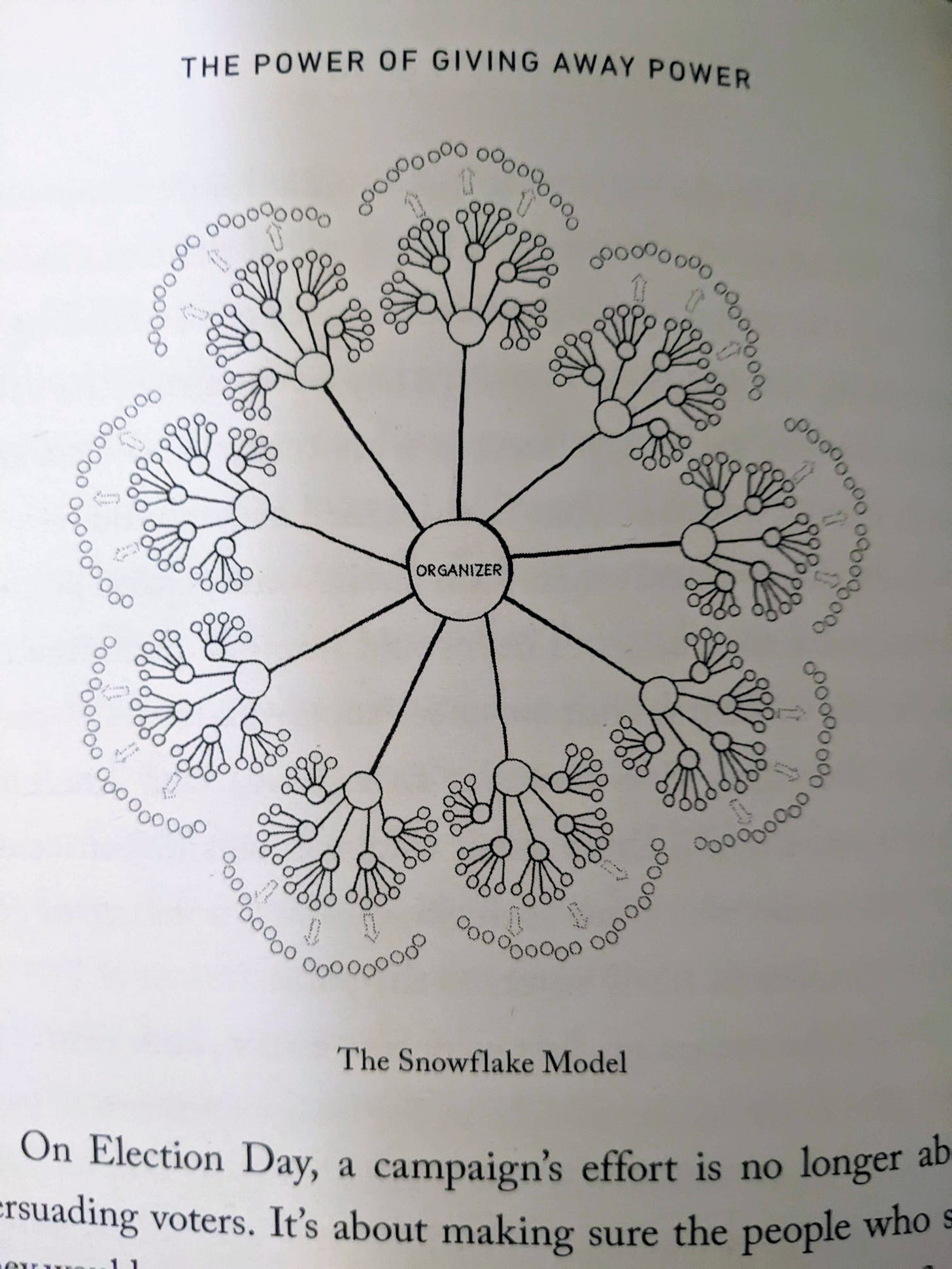📚Learning: The Power of Giving Away Power
We must try to get out by humanizing and empathizing, not by automating and replicating
Every week I share my learnings from a book on coaching, leadership, thinking, and business in bullet points. If you’d like me to expand or discuss on any of the points, comment on the post.
For previous weeks’ learnings, click here.
Takeaways
The Pyramid mindset fit people into functions at work and in general. We make detailed plans backwards from a set destination. We define tasks to lock in predictable output. We try to eliminate uncertainty by fixing our attention on structure, efficiency, and predictability. It is hierarchical in nature.
The Constellation mindset sets ourselves in motion toward possibility, not a set destination, allowing for many branching paths. Possibility attracts energy of like-minded people. Engagement is voluntary. Leadership flows as dictated by evolving needs. With vision and reciprocal commitment, power is given away, then grows, then more is given back.
The Pyramid mindset offers freedom from. Consolidated dependence under a hierarchy offers a certain kind of security from outside threat.
The Constellation mindset offers freedom with. Each of us freely acts in concert with others based on shared principles, habits, and sentiments. This offers choice and autonomy with a different kind of security and stability.
All our work in life is interdependent. Interdependence is the basis of the Constellation mindset.
Interdependence is the indispensable means for the discovery of self by each man. Dependence drowns out each individual’s potential. Independence suffocates individual identity because it doesn’t contribute to anything bigger or anyone else.
Interdependence means we:
Expect to need others
Expect to be needed
Expect to be changed
What we need to do is spark the energy and connection between people to make something that is bigger than any individual.
Most important activities in our lives — the things we do with our greatest sense of participation and involvement — are not winnable. You don’t win a marriage or a family or a friendship.
The Constellation mindset draws its power from those things we do with our greatest sense of participation and involvement, those things we care about most and can never win: relationships
Your interactions with people can be placed in four quadrants:
Routine relationships — we engage each other based on function, like a waiter and a diner. We are the jobs we perform for one another.
Special transactions — we are forced to conform to a standard or procedure that doesn’t really account for who we are, like filling out a form at the dentist office. We’re being recognized as unique but in a bureaucratic way
Routine transactions — There is frustrating friction with routine relationships and special transactions, so we try to automate them to avoid the friction.
Special relationships — We create space for our humanity and expecting to need others, to be needed, and to be changed.
When we find ourselves in the awkward quadrants, we must try to get out by humanizing and empathizing, not by automating and replicating.
Special relationships create psychological safety.
We say we grew the business, we grew flowers, we grew the economy. Grammarians have relented on this usage over the years, but traditionally, grow was an intransitive verb that doesn’t take an object. You can plant and cultivate and fertilize corn, but really, the corn grows itself.
The snowflake test: Is the pattern the same at any place and at any scale? Put another way, does the small pattern you just expressed or just observed look like the big thing you would want if you repeated it and repeated it? Are we shouting for calm? Throwing rocks for peace? Fighting for healing?
For previous weeks’ learnings, click here
Sharing is caring 🧡 If you find this post helpful, share it with your network and a friend 🌻





